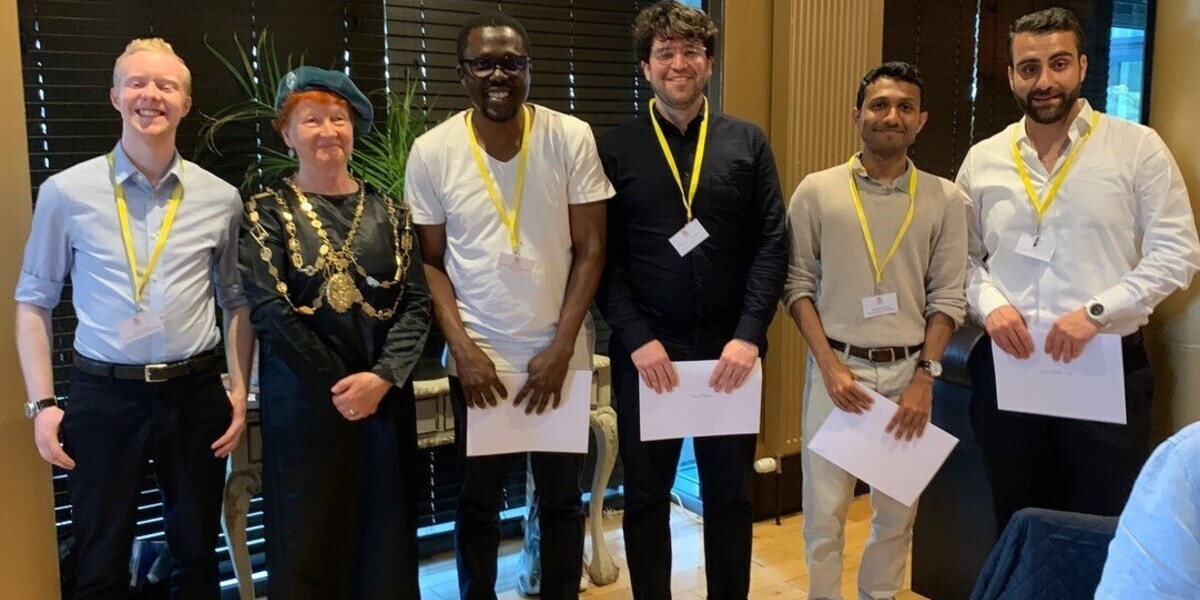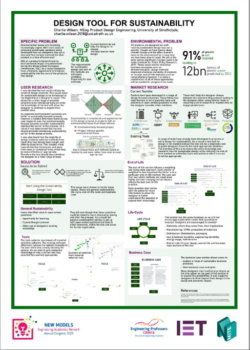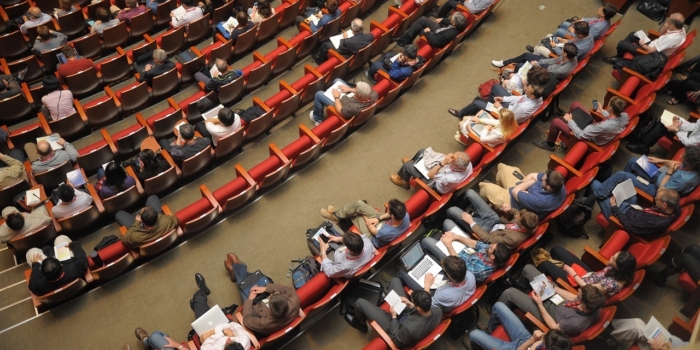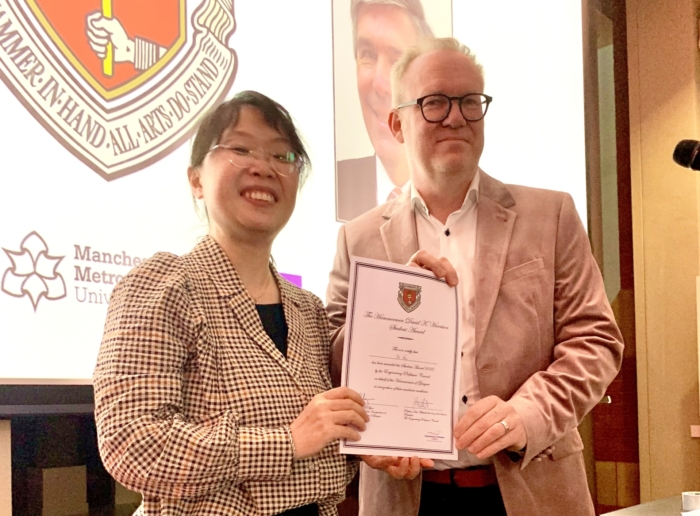 The Engineering Professors’ Council (EPC), the representative body for engineering academics in UK universities, has announced the winner of the 2023 Hammermen David K. Harrison Student Prize.
The Engineering Professors’ Council (EPC), the representative body for engineering academics in UK universities, has announced the winner of the 2023 Hammermen David K. Harrison Student Prize.
Awarded in association with the Incorporation of the Hammermen of Glasgow, the annual award has celebrated the outstanding achievements of engineering students since its inauguration in 2014.
The winner of this year’s prize is Charlie Wilson, 23, who has just graduated with a Distinction from his 5th year of an integrated Masters (MEng) in Product Design Engineering at Strathclyde. Charlie’s winning entry was a poster, aimed at “guiding designers through the process of picking solutions, while giving them information on a wide range of sustainable design practices”.
Charlie had made it through to the final shortlist of five students who each delivered a short pitch to Engineering academics attending the EPC’s Annual Congress at NMITE’s new Skylon Campus in Hereford, who then voted for the winner.
The shortlist had been whittled down from an unprecedented number of entries based on the chosen theme of New models: making the world a better place, with a focus on ethics and sustainability. Twelve longlisted entrants were invited to submit full posters, which were displayed throughout the Congress.
The award and prize of £500 was presented by Dr Nina Baker OBE, DL, Deacon, of the Incorporation of Hammermen of Glasgow. The Hammermen Award has now been renamed the Hammermen David K. Harrison Award in memory of the EPC’s Honorary Secretary, who passed away last year, who had also served as a former Deacon of the Hammermen and had been instrumental in establishing the prize.
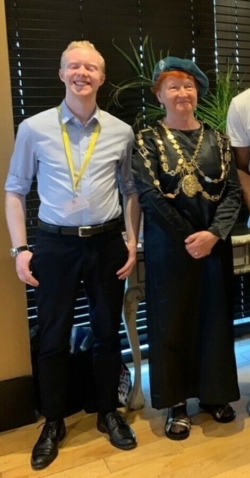 Charlie spoke to the EPC about his experience of winning the prize: “Winning the EPC Hammermen David K. Harrison Award was a fantastic conclusion to an engaging but challenging Master’s project. My project involved creating a new tool that would support and teach product designers to integrate sustainability into their designs. This project came about as I realised how challenging it was to find information about requirements for end-of-life methods and how to apply sustainable design practically. The current tools either required a lot of prerequisite knowledge from the designer about sustainability, a lot of research time with only some of the outcomes being applicable or the product needed to be very well defined to begin with.
Charlie spoke to the EPC about his experience of winning the prize: “Winning the EPC Hammermen David K. Harrison Award was a fantastic conclusion to an engaging but challenging Master’s project. My project involved creating a new tool that would support and teach product designers to integrate sustainability into their designs. This project came about as I realised how challenging it was to find information about requirements for end-of-life methods and how to apply sustainable design practically. The current tools either required a lot of prerequisite knowledge from the designer about sustainability, a lot of research time with only some of the outcomes being applicable or the product needed to be very well defined to begin with.
My submission to the competition highlighted these issues alongside my research into why they occur and how they affect student designers. My final design was a digital tool which guided a designer through their design introducing them to different areas for consideration and cutting down research time by supplying relevant information during the process. It was an honour for my project to be voted the winner out of the finalists by the delegates of the conference, a group of engineering academics.
Attending the conference was a great experience. The talks were informative and thought provoking as were the discussions with the other delegates. I was treated like a peer and learned about new models, challenges and novel opportunities and approaches in engineering education.”
Johnny Rich, Chief Executive of the EPC, commented: “I’d like to congratulate Charlie and the other students who made the shortlist. Each year, the standard goes from strength to strength and we really look forward to seeing where the hard work and enthusiasm of all those who entered will take them next. The impressive variety of ideas suggests that this new generation of engineers is already helping to shape an ethical and sustainable future for Engineering.”
You can see both the longlisted and shortlisted posters on the ‘Hammermen award’ tab here.
